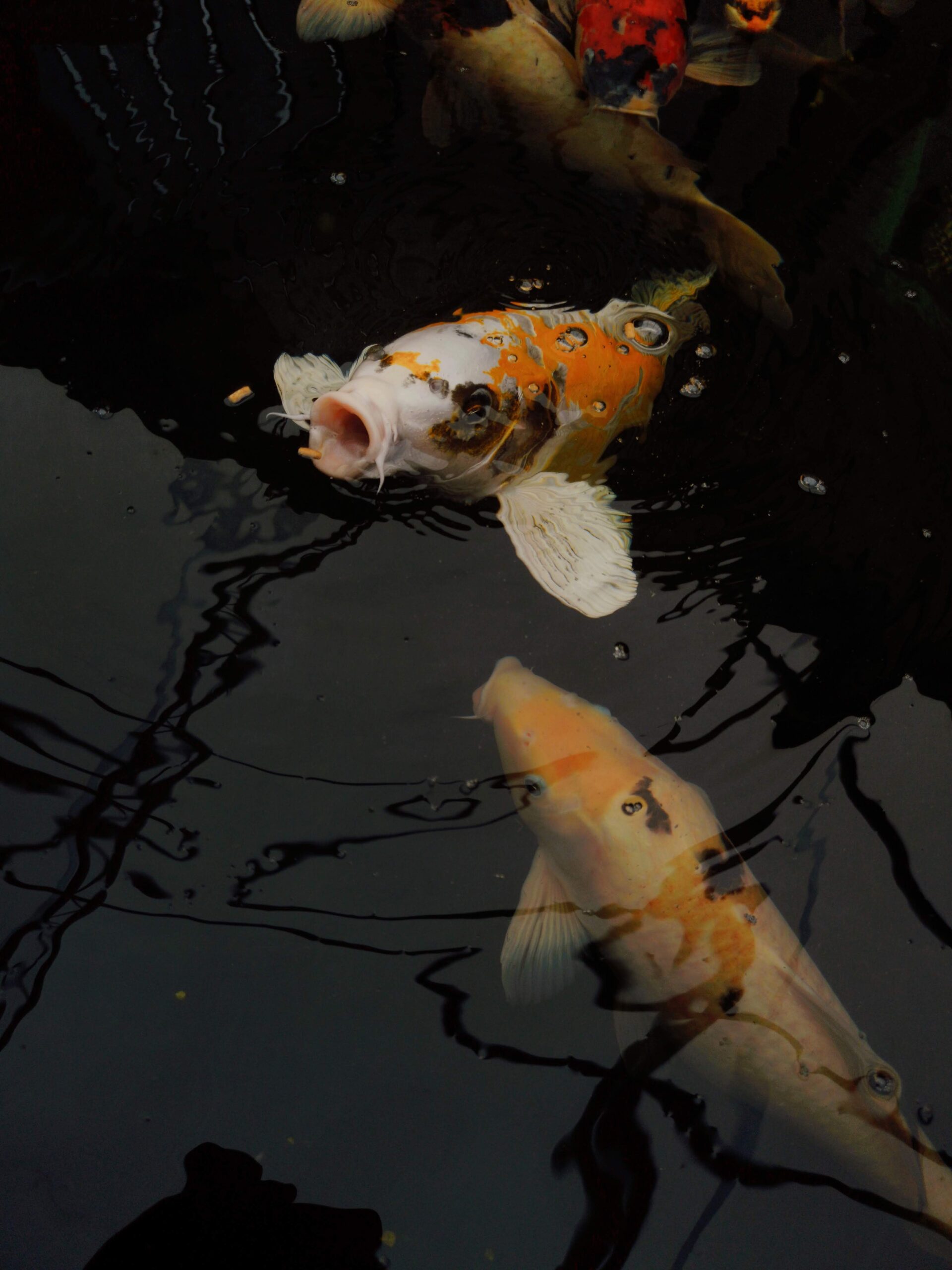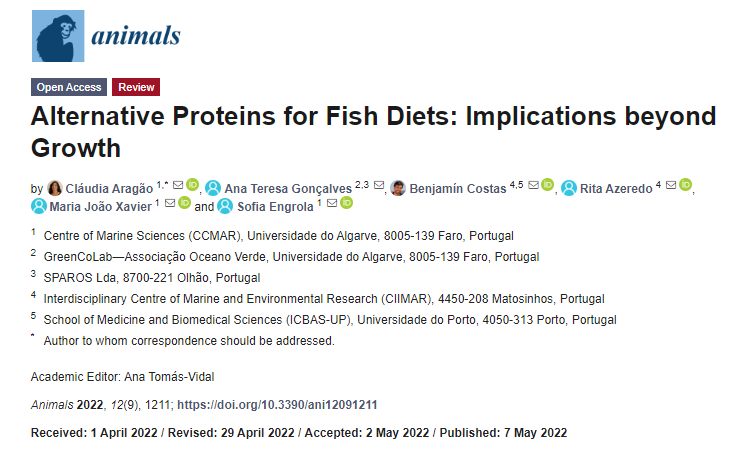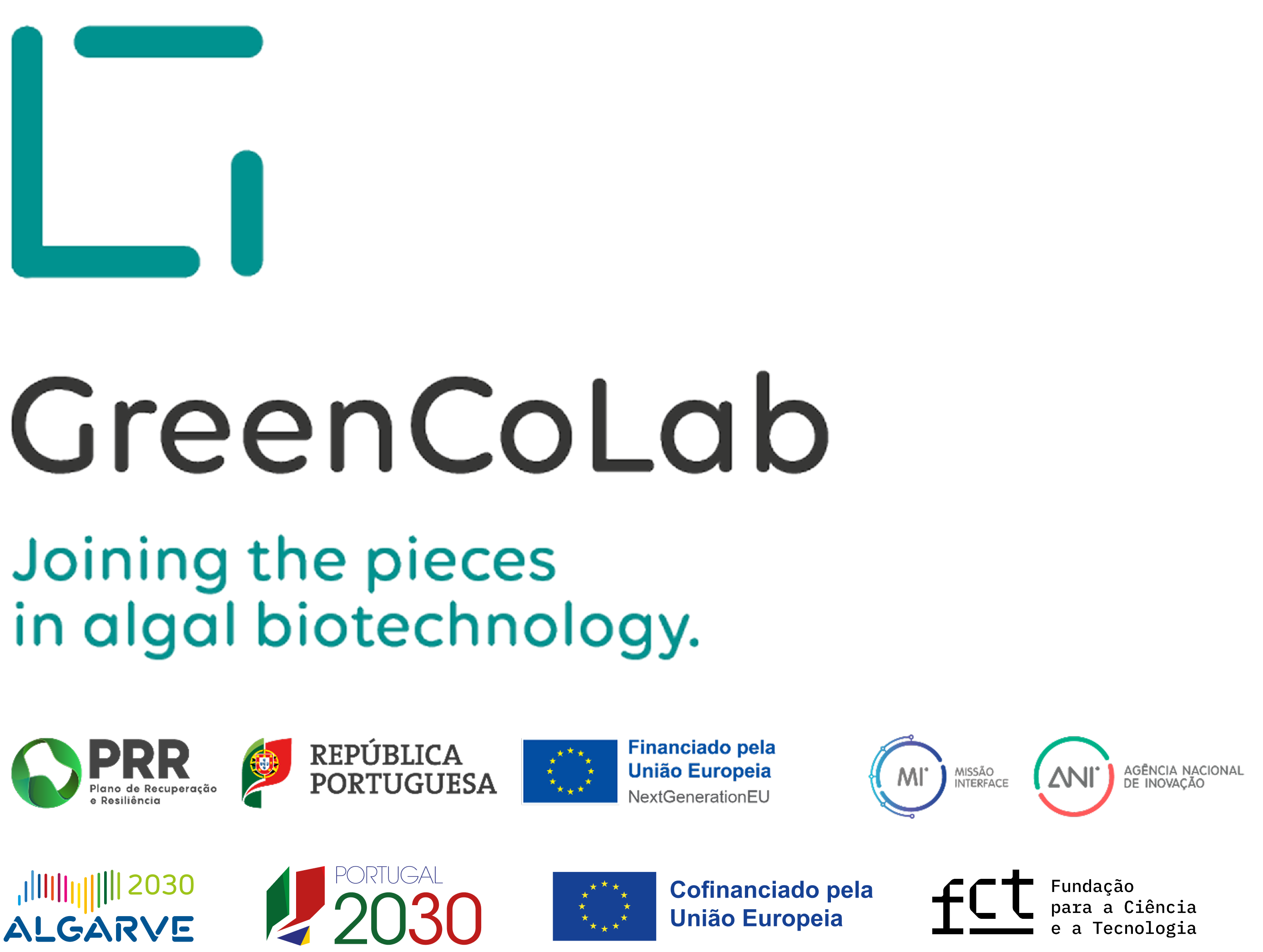

TITLE
Alternative Proteins for Fish Diets: Implications beyond Growth
JOURNAL
Animals
AUTHORS
Cláudia Aragão, Ana Teresa Gonçalves, Benjamín Costas, Rita Azeredo, Maria João Xavier and Sofia Engrola
ABSTRACT
Aquaculture is now well-established as a provider of protein for human consumption, and its contribution will be paramount to providing food for a nine billion population in 2050. Protein is usually the major constituent of fish feeds and the most expensive ingredient. For years, fishmeal was the preferential protein source in fish diets, but environmental and economic concerns led to the search for more sustainable proteins. Hence, research on alternative protein sources to fishmeal was fruitful, being firstly directed to terrestrial plant ingredients. Recently, research on novel ingredients, such as insect meals, macroalgae, microalgae, and yeasts, has proliferated. However, the impacts of protein and its constituents (amino acids) go beyond fish growth. Thus, this review will provide knowledge on the impacts of alternative/novel protein sources on fish stress and immune responses, disease resistance, and health. Although some negative impacts of alternative ingredients, for instance, on gut integrity and immune responses have been observed, research results also point to the potential beneficial effects of novel ingredients, such as insect meals, on fish health. This information is essential to the development of innovative diets that guarantee the production of healthy fish with high quality standards and optimised welfare conditions.



